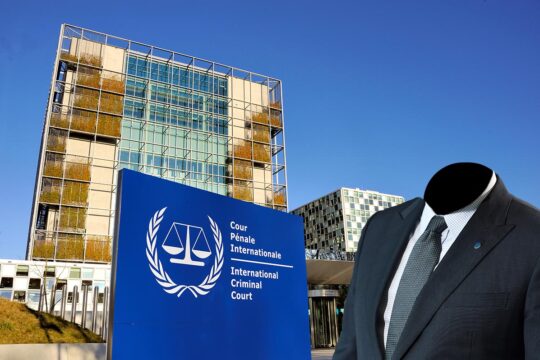A Belgian-Portuguese national working for a US charity has been arrested in the Central African Republic on suspicion of plotting with armed groups against the state, CAR authorities said on Friday.
The man was detained on Saturday by soldiers in Zemio, on the border between the CAR and the Democratic Republic of Congo (DRC), said the prosecutor in the capital, Bangui.
The CAR, one of the poorest countries in Africa, has been plagued by civil wars and coups and endured authoritarian regimes since independence from France in 1960.
Fighting still flares up between rebels or armed groups and the army, supported by mercenaries from Russia's Wagner group or its successor Africa Corps.
"Initial investigations" indicate the man was "in contact with a number of armed groups operating on CAR territory with the aim of carrying out a plot, an attack on internal security, and incitement to hate and rebellion against the defence and security forces", prosecutor Benoit Narcisse Foukpio said.
He said the man had Belgian and Portuguese passports which bore the same first name but different surnames and showed him to be "a consultant working for an NGO" called Family Health International 360 (FHI 360).
FHI 360 in the United States confirmed to AFP that "a consultant working to design a community development programme went missing in Zemio, Central African Republic, on Sunday, May 26.
"We have confirmed that our consultant is now in the custody of the Central African Republic government, and we are working to secure our consultant's immediate release."
A Brussels-based source close to the affair said a Belgian national had been arrested in the CAR.
Foukpio said a judicial inquiry had been launched against the man, who was also accused of "aiding subversive groups with attempted forgery and falsification of records" and he had been handed over to police in Bangui.
- Wagner -
Zemio is located in Haut-Mbomou prefecture on the DRC border where Russian paramilitaries, alongside a militia integrated into the army, are battling a major rebel group.
Civil war erupted in 2013 in the CAR when a Muslim-dominated armed coalition called the Seleka ousted president Francois Bozize.
Bozize set up armed militias known as the anti-Balakas, who were mainly Christian, to try to regain power.
Thousands of civilians were killed and both sides have been accused of war crimes and crimes against humanity by the United Nations.
Fighting peaked in 2016 before losing intensity two years later and violence rumbles on between successor groups of the militias and the government.
President Faustin Archange Touadera brought in fighters from Russia's Wagner mercenary group to help train his armed forces, and in 2020 more Russian operatives followed as rebel groups advanced on the capital.
They have largely helped push back armed groups from big towns but, like the armed groups, they are accused by the UN and international NGOs of violations against civilians.
The United States on Thursday announced sanctions against two companies in the CAR for supporting the Wagner group's security operations and illegal mining activities in the country.


